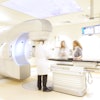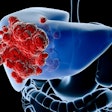Dear AuntMinnie Member,
Just minutes after the tragic events unfolded near the finish line of the Boston Marathon on April 15, 2013, those injured from the bombing began to arrive at several Boston hospitals.
At Brigham and Women's Hospital (BWH), the emergency radiology team helped triage the incoming victims. Although staff members are proud of how the hospital responded and of the care they provided, a BWH research team sought to review the institution's performance to see what could be done better in future emergency situations.
They shared their results in a paper published online today in Radiology. Find out what they concluded -- and what other institutions can learn from their experience -- by clicking here or visiting our CT Digital Community at ct.auntminnie.com.
Doctor bonuses for cancer screening
Patient screening rates for breast, cervical, and colorectal cancer aren't as high as most would like. To address this dilemma, the Canadian province of Ontario spent nearly $110 million ($102 million U.S.) on bonuses designed to motivate family physicians to screen more of their patients.
Unfortunately, the program didn't pay off. Screening rates for cervical and breast cancer barely budged, and colorectal cancer screening increased only slightly over pre-existing growth trends.
Of course, disappointing screening rates can't just be pinned on physicians. Organizational and patient factors also play an important role. Learn more by clicking here, or visit our Imaging Leaders Digital Community at leaders.auntminnie.com.
Addressing MRI safety
Despite MRI safety initiatives spearheaded by organizations such as the American College of Radiology and the Joint Commission, the number of reported adverse MRI events continues to be a serious concern for imaging centers and radiology departments.
The problem isn't a lack of information; plenty of MRI safety training videos, manuals, and guidelines are available. A culprit is the lack of programs to train technologists and radiologists about their roles in MRI safety, according to Dr. Emanuel Kanal of the University of Pittsburgh and fellow MRI safety advocate Tobias Gilk of Rad-Planning.
The pair also advocates the cultivation of MRI safety officers and directors to address flaws in imaging center and radiology department procedures and policies that lead to harmful events.
Delve further into the issue of MRI safety by clicking here, or visit our MRI Digital Community at mri.auntminnie.com.




















